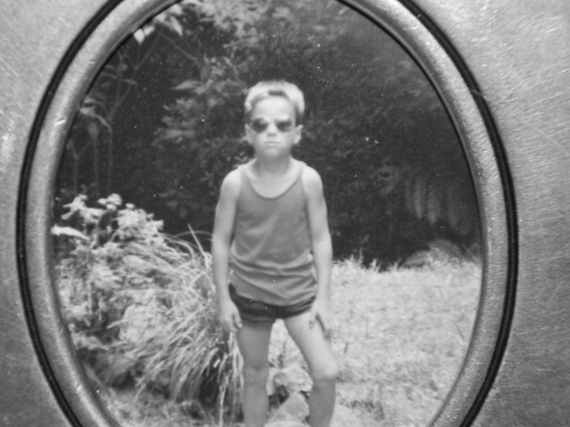
A client of mine, let's call her Mrs. Y, told me that although she always delivered great results in the workplace, she always felt insecure because she did not have the same qualifications as her peers. This is a great example of how a false belief can lower your self-esteem.
She believed, erroneously, that she wasn't as smart and valuable as her colleagues, even though in reality she had proved that this notion was complete poppycock. So, I encouraged her to adopt a new, healthier belief -- one that had so often been proved by her results: that she was as smart and valuable as her colleagues.
The truth is always there, often right in front of you. So, be a good detective on the case of your own self-development and remind yourself consistently to check the facts.
Most life coaches talk a lot about changing your beliefs. It is a process that I think is healthy and that we should all get better at. I am always challenging my clients to examine any possible false beliefs about themselves.
Our egos, that part of our mind that seeks to create an identity we can hold onto, often tries to wrestle with pain or insecurity by framing it in story that we can accept easily. We begin to believe these stories as the truth. We also take into ourselves the things that people say about us and weave that into our personal narrative. We hold onto these collections of self-made myths dearly.
Some of these myths can be healthy. For example, we can believe that we are here to make a positive difference. Other stories we internalize can be damaging. Therefore, we must be vigilant in examining any beliefs we have taken onboard in case they may be destructive.
To use the metaphor of a messy house, we must do a purge of our clutter and throw those beliefs in the trash that are moving us away from our most fulfilling lifestyle.
The ability to realize our ego, our identity, as a constructed story enables us to be creative with our identity throughout our lives. Rather than holding onto an identity out of a fear of the unknown, isn't it more exciting to examine many different ideas until we find the ones that bring us the most peace and happiness?
I had a great therapy session a few years ago. A typical session involves me skimming the surface, surfing atop the created identity I feel comfortable navigating. This time, however, the wave suddenly broke and I fell headlong into the swirling swell of inconvenient truths about myself that I had been in denial about or had just plain missed.
I was talking about my need for validation when it struck me like a tsunami. A sort of sad tsunami (say that ten times fast) to be precise, because I realized that from an early age I had a driving need to prove that I was a good person. On an internal level, deep down, I believed I was a tad bad.
When I was younger, I saw myself as somewhat of a troublemaker. An identity that is at odds with my authentic self. Actually, I am a kind guy with a VERY juvenile sense of humor, a great smile (at least that is what people tell me), witty, insightful, ruggedly handsome and most notably, incredibly humble. Seriously though, I am a pretty great guy. Unfortunately, my sense of self-esteem was so low as a youngster, on a deep level I believed that there was something inherently bad about me.
As soon as I identified this belief as false I had a moment of clarity. I was not a demon spawn. I had a track record of goodness to prove it.
To me, a good belief is one that promotes a healthy sense of self-esteem. With a healthy sense of self-esteem, you feel at peace with just being yourself. We should all have that, right? But what do you believe about yourself?
As human beings we have the ability to recreate ourselves, to write new myths and evolve. Test your beliefs against the four things that make up a healthy sense of self-esteem: confidence in your own abilities, self-acceptance, not worrying about what others will think, and optimism. If any of the beliefs you have about yourself run contradictory to promoting a healthy sense of self, it's time to take out the trash.
In our current culture, beliefs and mental illness are not discussed as candidly as they should be. In a recent interview on HuffPost Live, Pete Wentz expressed the estimable opinion that there should be no fear in talking about your problems. The unhealthy option is to live in denial. But your thoughts and beliefs are not reality and should be openly examined with no compunction.
I do hope you have a healthy, robust sense of self-esteem. But if for some crazy reason you might just be like every other human being that suffers from a little thing called insecurity, examining some fundamental beliefs about yourself should be a frequent exercise.
Be brave with your identity -- like Pete Wentz. Be skeptical of your beliefs. Keep an open mind and learn to throw out beliefs that don't work for you.
Mrs. Y certainly feels a sense of peace and confidence in the workplace from no longer accepting a false belief that was a crime unto herself. She has been released from a self-imposed jail of self-doubt. She believes, and knows, that she is indeed most worthy of her position. The preponderance of evidence is irrefutable. The truth does indeed set you free. So, I encourage you too to adopt beliefs that lead towards a healthier sense of self-esteem and the happiest, most authentic you.
